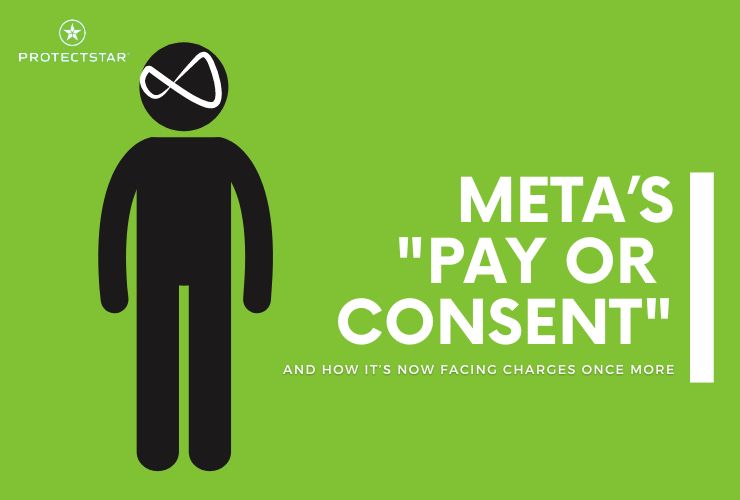The "Pay or Consent" Showdown: Why Meta's Ad Model Faces Consequences

The European Union's (EU) recent lawsuit against Meta, formerly Facebook, over its "pay or consent" advertising model has ignited a firestorm in the tech world. This seemingly simple dispute over user choice transcends mere business practices; it's a clash between fundamentally different philosophies on data privacy and user autonomy in the digital age. Let's dissect the intricacies of this case and explore its far-reaching implications.
A Model Built on a Flawed Foundation: At the crux of the issue lies Meta's subscription service. Users in Europe are offered an ad-free experience for a monthly fee. This, on the surface, seems like a fair value proposition. However, the EU argues that this model creates a Hobson's choice – users are forced to pick between surrendering their data for personalized ads or paying to escape the very tracking they find intrusive. The EU sees this as a violation of the core tenets of the Digital Markets Act (DMA): fostering user choice and fair competition in the digital market.
The Spectre of Surveillance Capitalism: The EU's stance is deeply rooted in its history with data privacy. Regulations like the General Data Protection Regulation (GDPR) prioritize user control over their information. Meta's model, in the EU's view, undermines this principle by essentially turning privacy into a paid privilege. The specter of the Cambridge Analytica scandal, where millions of Facebook users' data were improperly harvested and used for political targeting, still looms large. The EU wants to prevent such exploitative practices from becoming the norm, and this lawsuit serves as a strong deterrent.
Beyond Borders: A Ripple Effect on the Global Stage? The US, in stark contrast to the EU, has a more relaxed approach to data privacy. Companies like Meta have thrived under this system, gathering and monetizing user data with fewer restrictions. However, the EU's lawsuit could have a ripple effect across the globe. It raises critical questions about the ethical implications of data-driven advertising and the potential for similar regulations to emerge elsewhere. This could pressure the US and other countries to re-evaluate their stance on data privacy, potentially leading to a more harmonized global approach.
A Reckoning for Big Tech? The ramifications of this lawsuit extend beyond just Meta. The entire tech industry is watching this case with bated breath. If the EU prevails, Meta will be forced to fundamentally alter its advertising model in Europe, potentially impacting its global revenue stream. More importantly, it could set a precedent for how big tech companies operate across the continent. User privacy could become a paramount concern, forcing tech giants to innovate within a framework that respects user autonomy. This could lead to a more competitive online advertising landscape, with new players emerging who prioritize user privacy by design.
The Fight for User Autonomy: A Battle Beyond Regulations This lawsuit transcends the legalities of the DMA. It's a battle for user autonomy in the digital age. The EU wants users to have genuine control over their data, not be pressured into surrendering it as the price of admission to basic internet services. This fight has the potential to redefine the relationship between tech giants and their users. It's a battle cry for a digital world where privacy isn't a luxury good, but a fundamental right.
A Potential Catalyst for Change: The Road Ahead The EU's lawsuit against Meta is just the first salvo in a broader fight for user privacy. The outcome will be closely watched not just in Europe, but around the world. If the EU is successful, it could be a catalyst for a global shift towards a more user-centric approach to online data collection and advertising. This could usher in a new era where user privacy is not a matter of "pay or consent," but a core principle respected by all stakeholders in the digital ecosystem.
The question remains: Will the EU's stance on user privacy become the global standard, or will Meta find a way to navigate this regulatory minefield while preserving its data-driven advertising model? Only time will tell, but one thing is certain: this lawsuit marks a turning point in the ongoing conversation about data privacy and user autonomy in the digital age. The outcome has the potential to reshape the online landscape for years to come.
What is your take on this? Tell us on our social media channels!